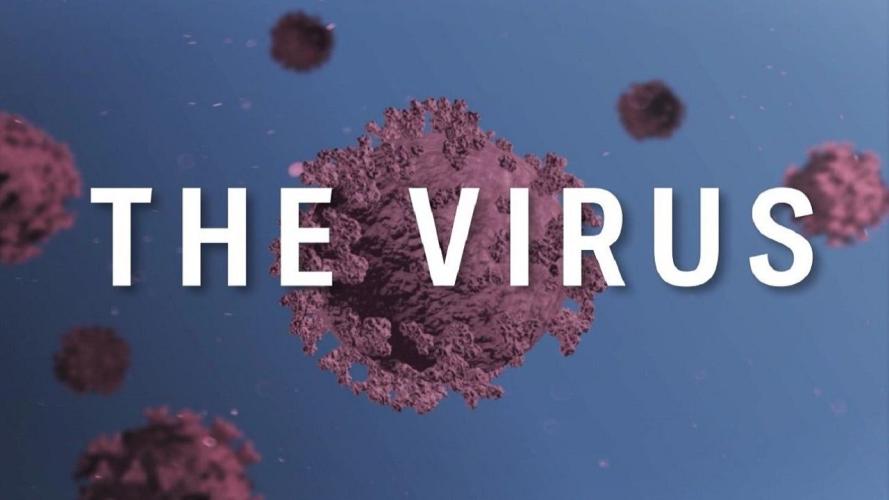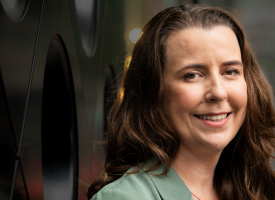Transcript: Dr Chris Moy on ABC 'The Virus'
Transcript: AMA Vice President, Dr Chris Moy, Outlet: ABC The Virus, Saturday, 30 April 2022
Subject: COVID, Funding of Australia’s health system, Federal Election health commitments

JEREMY FERNANDEZ: So Joe Biden's Chief Medical Adviser, Dr Anthony Fauci, issued a warning this week that the pandemic is not over and said we're experiencing different phases of it. So what are the impacts on our health system in those various stages? Dr Chris Moy is the Vice-President of the Australian Medical Association and he joins us now. Dr Moy, thanks for joining us. We're clearly in a different phase of the pandemic. We seem to have settled into a more controlled environment. Have we learnt enough to now say that those days of the explosive case numbers are now over for good?
CHRIS MOY: Look, although we'd like to think that it's all over, I don't think COVID really is going anywhere. And despite the fact that the vaccines have done an amazing job to avert the potential scenes of disaster like we had in Italy, where we had mass deaths and we had overloaded hospitals, we are not seeing a thing called herd immunity, which we had hoped. We are still seeing significant reinfection and we are still seeing a situation where we have the threat of new variants coming in being more infectious. And so I think the thing to keep in mind is we're not talking about a cold, we are still talking about a multisystem disorder, which is still going to cause a major threat, particularly with those who are immunosuppressed or who are unvaccinated, but also leave a lasting and ongoing legacy of long COVID. So we're seeing somewhere between three and 12 per cent with long COVID, which also has another little aspect to it of potential increases of things like strokes and heart attacks, and potential, you know, brain effects like earlier dementia because of what we're seeing it effects on the brain. So these are things that are going to continue on and be additive to what we already have in terms of a health system that is really already overstretched, needing to provide care for.
JEREMY FERNANDEZ: So this is an interesting thing during this election campaign, because we've returned to this debate in this election campaign about notions of debt and deficit, and who is best placed to manage the economy. Is health spending going to remain as high as it has been given all those factors that you just listed, given that we're now out of the emergency phase of the pandemic?
CHRIS MOY: What we spent the money on is on COVID and managing the pandemic, not on the sort of structural issues in terms of making sure we have a health system that is actually able to manage. And we already knew that we've had an overstretched health system, both in terms of hospital and the community or private health- primary health care system. Now we've got this problem now, because now we're facing a situation which, as I said, we're going to have to face with ongoing COVID threat. We're going to be facing this long COVID, and we're also having to catch up on the debt, which is really the fact that we've got surgery, which is being delayed and also care which has been delayed, and diagnoses which have been delayed. So people have really you know, getting later diagnosis and requiring more significant treatment, because things have been held off. Now this is a real problem, and I think the thing that the AMA would like to point out is that we really need to recognise this, and neither party recognises. And look, if we had a bushfire and we were left with this legacy and with so many people left in a fair bit of trouble in terms of the health and left behind, and also with this ongoing threat, we'd be applying sort of a post-disaster recovery type mentality. And that is what we need to have at this moment in time. Understand that it's no point us having got so many people through COVID, only to have them continue to suffer or potentially die early because the health system is unable to manage these extra new layers that are going to be required to care for the new burdens caused by ongoing COVID, long COVID, delayed care, and also continuing to provide health services on an ongoing basis for everything else.
JEREMY FERNANDEZ: Are doctors like you hearing what you'd like to hear from the campaign trail about those plans for future spending and strategies to manage COVID in the community?
CHRIS MOY: Not at all, I'm afraid. And we've heard basically nothing from the Government, unfortunately. They throw out large numbers, but they're essentially recurrent spending or spending they spent on COVID to do the things we need, to buy vaccines and do the testing. I mean, that's what that was spent on. That was not on the ongoing health needs of the community and the new layers of care that are going to be required. So we really do need, number one, a post-disaster recovery mentality in terms of catching up on things like elective surgery. And Victoria- the Victorian Government have, to their credit, focussed on that. Areas like looking at delayed care, looking at long COVID, but also just really bulking up the- both the hospital system and the primary health system for ongoing needs to be able to look after COVID in the long term, because I think at the moment, as we've kind of said, we're almost at a stalemate at the moment. We could even get worse at some stage with COVID. We need to understand this will be on top of the healthcare needs that we've had to provide for everything else.
JEREMY FERNANDEZ: Dr Chris Moy, thank you.
CHRIS MOY: It's a pleasure.



